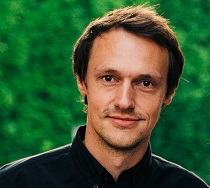Contact
Email:
jonas.knatz@nyu.edu
Short project description
My dissertation, titled Automation as an Intellectual Event, argues that the automation of work in the 1970s and 1980s constituted a particularly tense yet creative moment in which philosophers, sociologists, politicians, and engineers rethought the epistemic and normative premises on which their fields of knowledge had been built. Unlike the combustion engine, which had replaced muscular strength, computers were designed to displace sensory, communicative, and cognitive abilities. Work, long a subject of political, sociological, and economic theorization, began to change form. In turn, I argue, central categories of social and political thought—society, the state, the subject, and time—were also transformed.
Focusing on the thriving debate about technology and labor in West Germany, I show that academics, intellectuals, and even politicians regarded computerization as a historical rupture that compelled them to rethink their conceptual toolkit in response to the changes in offices and on shop floors. Thus, my dissertation offers a new history at the crossroads of the rise of (West) German power in Europe; the intellectual and political debates that shaped industry, labor, and economics; and the transformation of concepts of work, subjectivity, society, and technology—transformations that extended far beyond German borders.
As an investigation into the mutually reinforcing relationship between the transformation of labor and the debates it initiated, my dissertation aspires to provide a historical account of automation that is more comprehensive than either a purely intellectual or purely social history. Undoubtedly, automation constituted a social change: new machines rearranged labor practices, and the fear of a robotic takeover of work shifted the political agenda of unions and workers. Yet as a social phenomenon, automation was, from the start, inseparable from the discourse it sparked—and which, in turn, shaped it. When advancements in transistor and microchip research made automata cheaper and more flexible in the 1970s and computer automation picked up steam, it had already been anticipated by nearly thirty years of intellectual discussion. In addition, automation must be understood in relation to the postwar history of science and technology. My dissertation therefore also examines how cybernetics and information theory—the new sciences that underpinned this technological advancement—transformed both the labor process and the concepts through which intellectuals, engineers, and politicians understood and shaped this economic transformation.
Short Bio
Jonas Knatz is a Ph.D. candidate in modern European history at New York University. He holds a B.A. in Liberal Arts from University College Maastricht and an M.A. in Interdisciplinary Antisemitism Studies from Technical University Berlin. He is currently working on a conceptual history of automated labor in West Germany, focusing on how the transformation of work after World War II constituted an intellectual event that altered how philosophers, sociologists, engineers, and politicians understood time, space, the subject, society, and the state. Jonas Knatz has held visiting positions and fellowships at ETH Zurich, the Free University Berlin, Technical University Darmstadt, and the Remarque Institute in New York City. His writing has appeared in Central European History, neue politische literatur, and The Routledge Handbook of the History of Sociology of Ideas.


